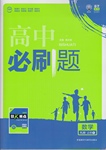题目内容
Born in America, I spoke English, not Chinese, the language of my ancestors. When I was three, my parents flashed cards with Chinese at my face , but I pushed them , my mom believed I would learn I was ready .But the never came.
On a Chinese New Year’s Eve, my uncle spoke to me in Chinese, but all I could do was at him, confused, scratching my head. “Still can’t speak Chinese?” He me, “You can’t even buy a fish in Chinatown.”
“Hey, this is America, not China. I’ll get some with or without Chinese.” I replied and turned to my mom for .
“Remember to ask for fresh fish, Xin Xian Yu,” she said, handing over a $20 bill .I the words running downstairs into the streets of Chinatown.
I found the fish surrounded in a sea of customers. “I’d like to buy some fresh fish,” I shouted to the fishman .But he my English words and turned to serve the next customer .The laugh of the people behind increased their impatience. With every , the breath of the dragons (龙) on my back grew stronger—my blood boiling— me to cry out . “Xian Sheng Yu, please” “Very Xian Sheng,” I repeated .The crowd erupted into laughter. My face turned and I ran back home , except for the $20 bill I held tightly in my pocket.
Should I laugh or cry. They‘re Chinese. I should feel right at . Instead , I was the joke , a disgrace (丢脸)to the language.
Sometimes , I laugh at my fish , but , in the end ,the joke is on . Every laugh is a culture ; every laugh is my heritage (传统) fading away(逐渐消失).
1.A. custom B. games C .characters. D. tradition
2.A. ahead B. around C. along D.aside
3.A. when B. before C. unless D. until
4.A. success B. study C. time D. attempt
5.A. aim B. joke C. nod D. stare
6.A. cared about B. laughed at C. argued with D. asked after
7.A. right now B. from now C. at times D. in time
8.A. decision B. permission C. information D. preparation
9.A. repeated B. reviewed C. spelled D. kept
10.A. farm B. stand C. pond D. market
11.A. guessed B. forget C. doubted D. ignored
12.A. by B. as C. with D. from
13.A. second B. effort C. desire D. movement
14.A. forcing B .allowing C. persuading D. leading
15.A. bright B. blank C. pale D. red
16.A. open-mouthed B. tongue-tied C. empty-handed D. broken-hearted
17.A. service B. home C. risk D. root
18.A.trade B. deed C. challenge D. incident
19.A. it B. us C. me D.them
20.A. thrown B. lost C. divided D. reflected
1.C
2.D
3.A
4.C
5.D
6.B
7.A
8.B
9.A
10.B
11.D
12.C
13.A
14.A
15.D
16.C
17.B
18.D
19.C
20.B
【解析】
试题分析:本篇文章为记叙文。“我”长在美国,已熟悉英语,但身为中国人,因为没有学习汉语而导致了去中国城买鱼的尴尬,这让我明白了一个道理:“笑话”反映的是一种文化的缺失,我们不应该让文化丢失。
1.1】C考查名词辨析。A. custom 风俗、习惯; B. games游戏、比赛;C .characters. n. “符号,字符,字”,Chinese characters“中国汉字”;D. tradition传统。作者的父母把带有中国汉字的卡片给作者看。故选C。
2.2】D考查副词辨析。作者把父母给他看的汉字卡片推到一边。A. ahead 前面;B. around在四周、在周围;C. along沿着---;D.aside adv. “一边,旁边”; push. . . aside“把……推到一边”。故选D。
3.3】A考查连词。作者的妈妈认为当他准备好的时候,他就会学习汉语了。A. when 当……的时候;B. before在---以前;C. unless除非;D. until直到---为止。因此选A。
4.4】C考查名词辨析。A. success 成功;B. study学习;C. time时间;D. attempt企图。句意:但那个时候一直没有来临。指作者准备好学习汉语的时候。所以才有了下面的笑话。可知选C。
5.5】D考查动词辨析。因为作者听不懂他叔叔的话,所以只能一脸茫然地盯着他叔叔看。A. aim目标、瞄准;B. joke笑话;C. nod点头;D. stare “凝视,目不转睛地看,盯着看,睁大眼睛看”。符合语境。
6.6】B考查动词短语辨析。因为作者不懂汉语,所以作者的叔叔笑话作者说甚至去唐人街买鱼都不会成功。A. cared about关心、在乎; B. laughed at嘲笑;C. argued with与---争论;D. asked after询问、问候。故选B。
7.7】A考查短语辨析。作者对于叔叔的嘲笑很不服气,所以他决定马上去买条鱼试试。A. right now立刻,马上;B. from now从现在---;C. at times有时候;D. in time 及时。可知选A。
8.8】B考查名词辨析。作者转过身去,希望能得到妈妈的许可。A. decision决定;B. permission允许,许可;C. information信息;D. preparation准备。permission“允许,许可”。其他几项,意思均不符合。故选B。
9.9】A考查动词辨析。作者怕忘记妈妈教给他的话,在临走前又重复了几遍。A. repeated重复,再述,重说;B. reviewed复习;C. spelled拼写;D. kept保持。故选A。
10.10】B考查名词辨析。A. farm农场;B. stand (货)摊,售货台;C. pond池塘;D. market市场。
fish stand“卖鱼的摊位”。 I found the fish surrounded in a sea of customers.我发现鱼摊被一群顾客围着。故选B。
11.11】D考查动词辨析。A. guessed猜测;B. forget忘记;C. doubted怀疑;D. ignored不理,忽略。通过下句的有效信息turned to serve the next customer可知,卖鱼的人并没有理会作者说的话。故选D。
12.12】C考查介词。A. by靠、通过;B. as作为;C. with 和---一起、具有、用---;D. from从---。with作为介词,在此处表示“因为”。因为没有耐心,后面那些人的笑声更大了。故选C。
13.13】A考查名词辨析。A. second秒;B. effort努力;C. desire渴望;D. movement移动、转动。with every second每一秒钟。我背上的龙的呼吸都会变强,这是一种夸张的说法,说明作者已经出奇地愤怒,忍无可忍了。可知选A。
14.14】A考查动词辨析。A. forcing强迫;B .allowing允许;C. persuading劝说;D. leading领导、引导。force“强制,强迫,迫使(某人或自己)做某事”,强调作者的愤怒。可知选A。
15.15】D考查形容词辨析。A. bright明亮的;B. blank空白的;C. pale苍白的;D. red红的。因为作者遭到了嘲笑,所以羞愧地脸变红了。因此选D。
16.16】C考查形容词辨析。A. open-mouthed目瞪口呆的;B. tongue-tied很难开口的;C. empty-handed两手空空的;D. broken-hearted支离破碎的。通过下面的信息except for the $ 20 bill I held tightly in my pocket可知,作者两手空空地回了家。故选C。
17.17】B考查名词辨析。A. service服务;B. home家;C. risk 冒险;D. root根。因为都是中国人,所以本来应该很自然。故选B。
18.18】D考查名词辨析。A.trade交易;B. deed作为,事迹;C. challenge挑战;D. incident小插曲,生活中的小事。有时候甚至作者自己都嘲笑一下自己买鱼的这个小插曲。故选D。
19.19】C考查代词。但是,最终这个笑话发生在了我身上。故选C。
20.20】B考查动词辨析。A. thrown扔、投;B. lost失去;C. divided分开;D. reflected反应。
每一个笑声都是文化的丢失,每一个笑声都是传统的消退。lose和后面的fade away是一种词义的相近关系。故选B。
考点:考查故事类阅读。

 高中必刷题系列答案
高中必刷题系列答案